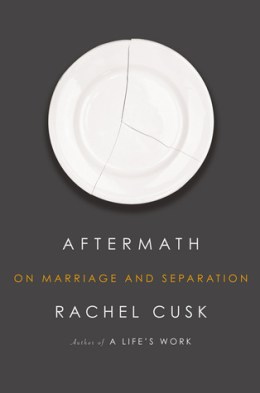
Q: What do Lady Macbeth, the removal of a molar and a one-legged landlady have in common?
A: They’re all part of a blistering review penned by critic Camilla Long in her March 4, 2012, Sunday Times takedown of Rachel Cusk’s book Aftermath: On Marriage and Separation. Her singular feat of verbal devastation was recently recognized as the Hatchet Job of the Year by the literary digest The Omnivore, which described her piece as “angriest, funniest, most trenchant book review” of 2012.
(MORE: TIME’s Top 10 Fiction Books of 2012)
It’s not hard to see why Long deserves the award. She begins her review by calling it “quite simply, bizarre”—and it only gets weirder (and meaner) from there. Here’s just one choice selection from her scathing take on the story of a marriage’s end (available in full at the Omnivore’s site):
The book is crammed with mad, flowery metaphors and hifalutin creative-writing experiments. There are hectic passages on Greek tragedy and the Christian concept of family, as well as fragments of ghost stories, references to the Anglo-Saxon heptarchy, and heavy Freudian symbolism, including a long description of the removal of a molar, “a large tooth,” she writes portentously, “of great…personal significance”. The final chapter is an out-of-body experience — her situation seen through the eyes of her pill-popping Eastern European au pair. Oddly, I read the whole thing in a Bulgarian accent.
Along with the honor and glory of the award, Long will receive a year’s worth of potted shrimp, an English culinary staple.
John Walsh, one of this year’s judges, explained to the Independent why bad reviews are worth rewarding: “Expressions of delight and approbation are welcome to authors, publishers and people looking for birthday-gift ideas. Bad reviews, however, reverberate down the years,” he said. The best hatchet jobs are more than a list of problems with a book—and in this particular case, the winner prevailed due to its surprising effect on the reader. “It made you want to go and read the book,” said Walsh, “for all its faults.”

